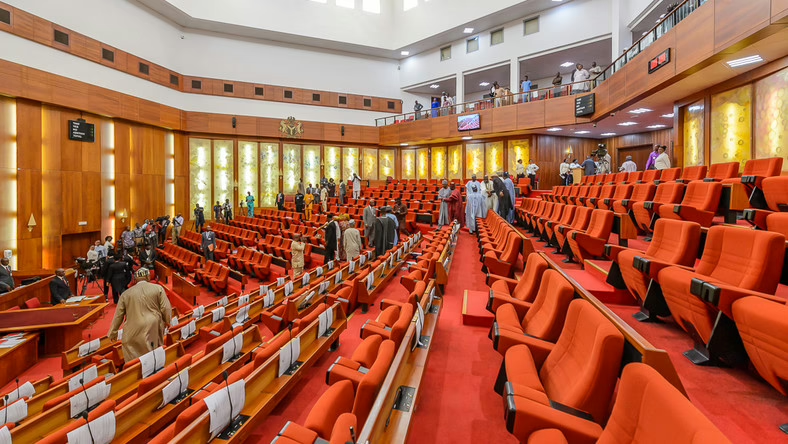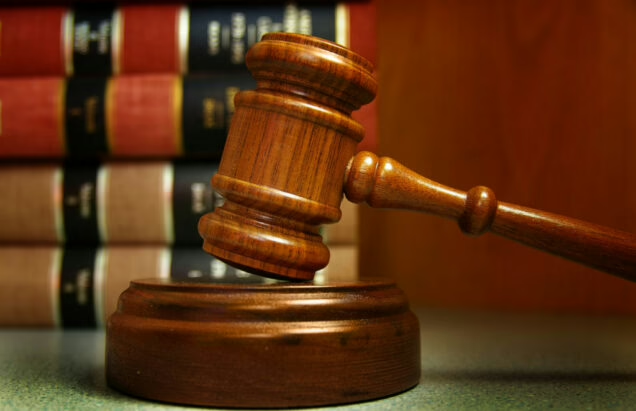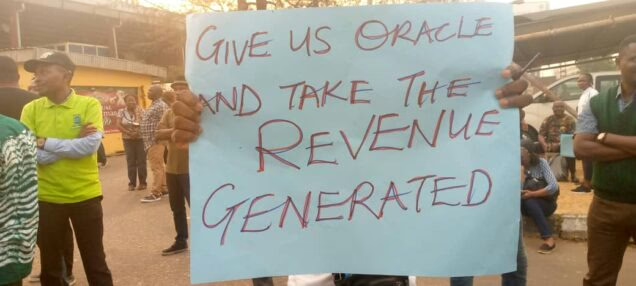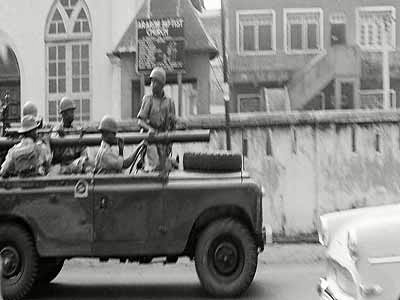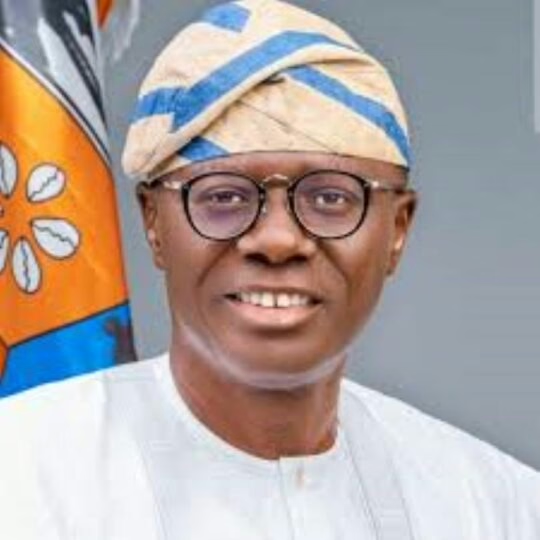Five years ago, precisely on October 11, after our beloved country, Nigeria, turned 59 years old, I wrote a piece titled, ‘The Call for a National War on Poverty’, published in this column and ThisDay newspaper as well as several other traditional and online news platforms.
The motivation for writing the article was because so much energy had been invested in fighting corruption to the extent that the nastiness of the war against graft was scaring away potential investors who were scared of the toxic environment for foreign investors that the Nigerian business climate had become, hence our beloved nation was plunged into recession, not once but twice in eight years.
Today, nearly five years after, Nigeria and her citizens have continued to revel in corruption and wallow in poverty such that rather than the economic status of the long-suffering Nigerians transiting from poverty into prosperity, their condition has degenerated into unprecedented misery that triggered the street protests tagged #EndBadGovernance by angry and hungry Nigerians which regrettably has left a trail of sorrow, tears and blood.
It is trite to state that the four days of street protests have wreaked havoc on Nigeria and Nigerians, as the beleaguered nation and its ailing economy have become even more imperiled so much so that the ensuing collateral damage of lives and properties has compelled the presumed convener of the protest, the popular lawyer, Olu Adegberuwa, to reportedly express regret for doing so.
It is against the foregoing backdrop that I titled this article first published on October 11, 2019, which I am republishing with a new title: ‘Are President Tinubu’s Reform Policies Against Poverty?’
The question raised in the title of the article on whether the incumbent administration is fighting poverty instead of corruption is pertinent for the reason that instead of solely fighting corruption as his predecessor, ex-President Muhammadu Buhari did for eight years, the fulcrum of President Bola Tinubu’s administration which is just a little over one year old, has been a laser focus on massive reforms that are aimed at reversing 40 -50 years old policies that shackled Nigerian with poverty such as subsidy on petrol, naira and electricity while replacing them with new socio-economic paradigms which although are game changers for good, have caused initial hardships for a critical mass of Nigerians.
Even though my clarion call five years ago for a change of our development paradigm from solely war against corruption to war against poverty, was unheeded by the immediate past administration as it persisted in its avowed fight against corruption which turned out to be hollow as Nigeria’s corruption perception index never improved compared to the damage the fight against it did to our country, even as the economy and image of Nigerians became battered and mired in mud all over the world. And the incumbent administration is expected to provide succor for long suffering Nigerians like a healing balm after the painful and miserable experience that they endured under the watch of the immediate past administration.
In light of the above, President Tinubu, who had come with a change strategy, was expected to rapidly deliver the proverbial dividends of democracy.
But owing to the delayed or late manifestation of the promise of the drastic reforms in the economy which have had a shockingly harsh effect on the hoi poloi, the promise of change encapsulated in the Renewed Hope Agenda has become an albatross on President Tinubu because the average Nigerian has been expecting with bated breath a 360% change in their circumstances.
That is irrespective of the fact that it is wishful thinking to assume that Nigeria’s current economic woes which are the cumulative effect of sloppy policies by past leaders would vanish by merely waving a magic wand.
In the course of the four days mayhem, some events around the world have stood out to me.
The first is the negative effect of the ongoing civil disobedience in the United Kingdom, UK, which is being fueled by misinformation through the social media.
As it may be recalled it was triggered by the stabbing to death of three innocent children in NewPort by a 17 years old man from a neighboring town who has been wrongly identified by far right activists as an immigrant, perhaps an illegal one.
Although the UK authorities have identified the situation as an anti-immigration crisis. I would argue that it is actually xenophobia. The type that happened in South Africa when the locals became envious of the success of immigrants who are fellow blacks and started attacking their businesses and homes.
Now, just as Nigerians are marching on the streets against hunger, Britons are rioting in the name of anti-immigration against Muslims/Arabs who they believe are stealing their jobs and polluting their culture, which is quite sad and disappointing.
Apparently, Britons are not finding the phenomenon of even legal immigrants into their country, even though they are there to fill the gap left when the country exited the European Union, EU.
That’s the reality of life and it shows that there are crisis all over the world.
The assertion above is reinforced by the fact that the former president of the USA, now the candidate of the democratic party, Mr. Donald Trump, and his supporters who are estimatedly 30% of voters are also unhappy about illegal immigrants into the US who his followers accuse of taking the jobs that should have gone to Americans and Trump is likely to win the Nov. 5 election in that country owing to his popular stance to keep away immigrants just as Marine Le Pen’s extreme right party has won significant number of seats in the last general elections in France by pushing an anti-immigration agenda.
In line with the wish of the French people, the current President Emmanuel Macron has to form a coalition government after the ongoing Olympics in Paris, France.
The reality is that more and more people are becoming intolerant or unaccommodating of other nationals, and impatient with the decisions of their leaders and they are expressing themselves boldly either on the streets or through the ballot boxes as being witnessed via the ongoing violence on the streets of the UK and in France following an election exercise that won the far right more seats in parliament.
The second is the indignation expressed by the Nobel laureate Prof. Wole Soyinka about the brutal approach to managing the street protests, which has resulted in the death of as many as 40 Nigerians by some account and 17 by other sources.
Prof. Soyinka wrote: “Live bullets as a state response to civic protest – that becomes the core issue. Even tear gas remains questionable in most circumstances, certainly an abuse in situations of clearly peaceful protest.
“Hunger marches constitute a universal S.O.S., not peculiar to the Nigerian nation. They belong indeed in a class of their own, never mind the collateral claims emblazoned on posters.
“They serve as summons to governance that a breaking point has been reached and thus, a testing ground for governance awareness of public desperation.
“The tragic response to the ongoing hunger marches in parts of the nation, and for which notice was served, constitutes a retrogression that takes the nation even further back than the deadly culmination of the watershed #ENDSARS protests.
“It evokes pre-independence – that is, colonial – acts of disdain, a passage that induced the late stage pioneer Hubert Ogunde’s folk opera BREAD AND BULLETS, earning that nationalist serial persecution and proscription by the colonial government.”
Compared to how the British police have been less brutish to violent rioters, Nigeria police can be said to have been unprofessional. But it may also be argued that the security agencies in Nigeria were harsher on the protesters owing to the hidden second agenda of the protesters which is regime change discovered by Nigerian security agencies who are duty bound to prevent it.
The other take away for me is the CNN documentary of 1978 which was about civil rights movement in the USA revealing the brutality of security agencies back in the days.
What struck me in the documentary is that going by how mean the Nigeria police have been to protesters which is comparable to how American security agencies were to fellow American protesters.
By and large, I got the sense from that documentary that Nigeria’s practice of democracy is at the point where the USA was in 1978.
Below is how I made the case for a war against poverty instead of against corruption, which in my view had been lost:
“With Nigeria remaining in socio-economic doldrums at age 59, does it not suggest that Africa’s most populous country is suffering the malaise of mid-life crisis?
By way of comparison, China also celebrated seventy years as a communist country on the same day-October 1 when Nigeria marked her 59th anniversary of independence from Britain.
That means China is only 11 years older than Nigeria in terms of nationhood and independence.
But the East Asian country has grown from being an autarky (like North Korea trading with nobody) some 30 years ago until it joined WTO in 2001 and became a production factory to the world.
Subsequently, China assumed the position of the world’s second-largest economy status with an estimated $12 trillion GDP, and it is now on track to becoming the largest economy by global ranking, in less than two decades, when it would have overtaken the USA’s economy which is currently the world’s largest.
In contrast, Nigeria has degenerated from being a peer to countries like Singapore, Malaysia, Taiwan, and South Korea, which it was at par at independence in 1960, to banana republic level, in terms of socio-economic standards of living and security of lives and property of citizens.
The unfortunate and depressing descent of Nigerians into a vortex of misery, courtesy of the reoccurring visionless leadership of our country is a much bigger malaise than the anti-corruption rhetoric of governments from the colonialists to military and democratically elected civilians that have not yielded any modicum of positive dividends since independence some 59 years ago.
There is a common saying that it is only a madman who does one thing consistently the same way and expects a different outcome. From trend analysis, it is clear to all that successive Nigerian governments have been fighting graft in the same manner since independence.
So are Nigerian leaders mad?
If they are not, why have they been flying the same anti-corruption kite all these years?
Could it boil down to the fact that nobody in Aso Rock Villa has bothered to conduct simple research into corruption antecedents in Nigeria to realize how the scourge has defeated all the previous leaders who attempted to tame the monster as evidenced by the fact that rather than be eliminated or reduced, corruption has become more entrenched, malignant and hydra-headed like a virus that’s being treated with the wrong antibiotics and as such, became resistant and cancerous?
Going down memory lane into the annals of Nigerian history, you may take away the same impression that our leaders may be afflicted by some mental malady that is responsible for their fighting corruption in the same manner continuously and expecting a different result.
For instance, the justification that the likes of Major Chukwuma Kaduna Nzeogwu and co-coup plotters had for toppling the first democratically elected government in Nigeria in 1966 was that corruption had become so embedded and endemic in government and public sector that 10% of public contracts value was being demanded and paid to public officials.
Today, it’s not just 10%, but the entire funds for a project can be embezzled if the alleged diversion of $2.1 billion for arms procurements leveled against Dasuki, former National Security Adviser to ex-President Goodluck Jonathan, is anything to go by.
Similarly, several public officials assigned to recover stolen public funds have also been known to re-loot the loot as reflected by the case of Abdulrasheed Maina, the former chairman of the Pensions Reform Task Team, that allegedly looted billions of naira recovered from pension fund thieves, absconded and later weaved his way back into the civil service until he was recently arrested and re-arraigned.
After the counter-coup of 1967 where it was alleged that the plotters of the 1966 putsch were ‘corrupt’ and ‘fraudulent’ in terms of ethnic bias by assassinating only top military officers from a particular section of the country, and officers of religious faith while preserving the lives of those from the ethnic stock and faith of the coup leaders, the Brigadier Murtala Muhammed led coup of 1975 was also mainly driven by the crusade against corruption in government.
The fiery army General is famous for the mantra: “This government cannot condone indiscipline” which is a military euphemism for corruption.
That interregnum was followed by the coup led by General Muhammadu Buhari on December 31, 1983, which like the 1966 and 1975 coups was on a mission to dislodge the democratically elected government of Alhaji Shehu Shagari in the bid to clean the proverbial Augean stable by getting rid of corrupt politicians in the country.
The Ibrahim Babangida-led palace coup of 1985 that unseated Buhari’s 18-month spell in office was also launched to cleanse our country of corruption. This time the corruption was not so much of bribery, but of the hue of fraud and double standards as reflected by the scandal of 53 suitcases allegedly belonging to the Emir of Gwandu which was illegally allowed into the country during the change of Nigerian currency. That’s in addition to the case of an underage child of a member of the ruling military council going on the Muslim religious pilgrimage to Mecca which was against the law, amongst many infractions.
The fearsome army General Sani Abacha, who took over the reins of government in 1993 after Babangida stepped aside, did not have an anti-corruption agenda, rather successive governments had recovered billions of dollars stolen and stashed abroad by the late dictator. Similarly, General Abdulsalami Abubakar’s short tenure as interim military head of state from 1998 to 1999 had no anti-corruption ideological inclination because it had no time for such luxury.
However, the democratically elected government of Olusegun Obasanjo in 1999 was geared towards continuing with the anti-corruption playbook of the past leaders hence it established the Economic and Financial Crimes Commission (EFCC) to tackle graft shortly after he assumed office.
The assertion above is underscored by the fact that the Nuhu Ribadu-led EFCC was primed to lead the charge against corruption both in the public and private sectors in the same old style that has always been applied in the checkered history of Nigeria.
Skepticism about the altruistic value of the government’s persistent war on corruption was triggered at that point as cynics were convinced that the fight against graft under the EFCC was not only partisan but weaponized by then-President Obasanjo to rein in his opponents across the aisle and also compel fellow party members to tow his line.
Thereafter, Umaru Yar’Adua, of blessed memory, struggled with the battle against corruption until his sudden passage in 2010 after which Goodluck Jonathan assumed the leadership of our country.
Jonathan attempted to migrate the fight against corruption from the rudimentary level of naming, shaming, and jailing, which had been the modus operandi of successive governments, to a fraud prevention system via technology without success, until President Muhammadu Buhari returned to Aso Rock Villa as a democratically elected president in 2015, and reinvigorated the battle against corruption by reverting to status quo ante.
If at age 59, the war against corruption (a cankerworm that’s believed to be the bane of Nigeria and the bogey of its socioeconomic development) started by the British colonialists in the late 1950s has remained a reoccurring decimal in the agenda of successive governments nearly 60 years after, Nigeria has certainly lost the battle.
So let’s declare a national war on poverty which is the demon that the vast majority of Nigeria’s poor no longer want to be associated with and can’t wait to turn their back against.
Records reveal that ranging from the pre-independence period, Dr. Nnamdi Azikiwe, the first President General of Nigeria; Abubakar Tafawa Balewa, the first Prime Minister of Nigeria, and Obafemi Awolowo, the Premier of Western Nigeria, were all investigated, and indicted at various times by the British colonialists for corruption.
The scenario above is clear evidence that the war on corruption which was started by the colonialists in the late 1950s has not been won by the government, rather the corruption monster that has been bedeviling our country has been having the upper hand.
Allow me to acquaint you with the anti-corruption record of China, the world’s second-largest economy.
Since 2012, when the current Chinese Premier Xi Jinping assumed power, an average of 50 top officials have been tried and jailed annually. In some cases, the death penalty was applied.
And at a point in time, there were nearly one million public office holders under investigation in the city of Beijing alone, according to Minxin Pei, a Professor of Government at Claremont McKenna College in the USA.
Even high-ranking military chief, Guo Boxiong, recently committed suicide while being investigated for bribery. That’s in addition to a Communist Party General Secretary and Politburo member, Sun Zhengcai, who was also tried and jailed, according to a report by a Drake University, USA don, David Skidmore.
If the purpose of the heavy crackdown on graft, like the one recently carried out by the crown prince of Saudi Arabia, Mohamed Bin Salman, is ostensibly to send the message that nobody is above the law or untouchable, corruption in China has not abated.
Mark Jennings, a Forbes magazine contributor reported that although the Chinese leader is portrayed as having zero tolerance, “However, China ranks 77th on Berlin-based nonprofit Transparency International’s 180-country “Corruption Perceptions” scale.
The widely cited index assigned it a lowish to a mid-range score of 41 last year, barely changed from 39 in 2012 when Xi took office and in every intervening year”.
Similarly, Moody’s Investors Service has found that China also falls in the middle of the pack for graft that impairs a country’s “ability and willingness” to repay debt, says the service’s Singapore-based associate Managing Director Marie Diron.
The record of anti-corruption and its false positive outlook is not different in Nigeria.
We are all witnesses to our country’s slide in the corruption index from about 121 in 1996 to 144 out of 175 least corrupt countries, according to Transparency International’s 2018 rating. As if to complement the abysmal corruption rating, our country has taken over from India as the poverty headquarters of the world, according to a survey by the World Poverty Clock.
All these woes have befallen Nigerians despite the rigorous fight against graft put up by President Buhari including unwittingly endorsing the branding of Nigerians as ‘fantastically corrupt’ by ex-UK Prime Minister, David Cameron.
By simple logic, if the fight against corruption that has been waged by colonialists pre-independence and subsequently by our political leaders post-independence for at least 60 years had been successful, it won’t remain permanent feature and battle cry of politicians when they are seeking office till the present time. If the anti-graft had been won by successive governments, our country, like its former peers such as Singapore, would be first, not third world.
And isn’t it paradoxical and absurd that both Obasanjo and Buhari fought corruption as military heads of state and still returned 30 years after as democratically elected presidents to fight the same scourge?
A rather odious but curiously pragmatic slogan promoted by the Nigeria Police Force (NPF) some time ago was: ‘If you don’t trust the police, try the thug’.
Following the underpinning logic of the rather nihilistic slogan, since Nigeria has failed abysmally in its fight against corruption for so long, why don’t we launch a national war against poverty frontally?
After all, corruption is only one of the many contributors to poverty as there are a slew of other factors that engender it.
So why don’t our leaders take on the poverty demon directly?
One of the measures or policies for mitigating poverty is a well-articulated social safety net.
Presently, Nigeria does not seem to have a viable and robust social safety net that could serve as a buffer or cushion for the poor against poverty.
Under Ibrahim Babangida’s regime, a social safety initiative, ‘Better Life for Rural Women’, was promoted by his wife, Mrs. Mariam Babangida of blessed memory.
The women empowerment program had a profound effect on a critical mass of Nigerians from the grassroots to the top echelon.
More so because it was women-focused and being the gender that is responsible for the home front, it was adjudged a resounding success.
Before that program, there was the Jerome Udoji-led upward review of salaries of civil servants tagged ‘Udoji Award’ in 1974 under Yakubu Gowon’s regime which rather than solve the challenge of poverty, exacerbated it as it spiked inflation in the economy.
There was also the Petroleum Trust Fund (PTF) promulgated under the watch of the military dictator Sani Abacha and meant to ameliorate the pains from the increase in petroleum pump prices. That exercise led by then-General Buhari was blighted by large-scale corruption.
The current N500 billion special intervention funds set aside by the present government in power for social investment as encapsulated in the Tradermoni, school children feeding, NPower youths empowerment initiative, statutory transfer of N5,000 to indigent Nigerians schemes, have proven to be less efficacious basically because the motive and implementation have been adjudged not to be altruistic.
As a matter of fact, the ongoing anti-poverty schemes have been dogged by criticisms including a scathing dissing by First Lady Aisha Buhari who lamented that Tradermoni did not get to her people in Adamawa State, a complaint, and grudge also echoed and nursed by a plethora of Nigerians from other states.
Critics, especially from the opposition party, also alleged that Tradermoni, under the purview of Vice President Yemi Osinbajo’s office has been nothing but a vote-buying scheme by the ruling party.
The allegation underscores the belief that the social safety measures which President Buhari copiously mentioned in his Independence Day broadcast as being one of the fulcrum of his administration, have been as unedifying and forlorn as the long futile fight against corruption waged by successive governments going back to the colonial days which is more than 60 years.
There should be a practical alternative to the unproductive war on corruption to pull a critical mass of Nigerians out of the misery of the poverty trap as the Chinese have done, is simple:
Let’s declare a national war on poverty in the manner that Nigeria’s past leaders continuously waged war on corruption. Perhaps that would help us catch up development-wise with our peer countries at independence in 1960 such as Singapore, Malaysia, and Indonesia, amongst others.
We can start by understudying the blueprint of some of these Asian tiger countries.
A good candidate that lends itself to such emulation is Singapore.
The secret of the success of that Southeast Asian country has been well documented in the critically acclaimed book by its former President who is regarded as the ‘father of the country, Lee Kuan Yew, titled, ‘From Third To First World: The Story of Singapore:1965-2000’.
In that book, Nigeria was referenced, sadly not for good, but for the notoriety of our leaders for corruption.
Nevertheless, it has nuggets of wisdom for Nigerian leaders to imbibe and emulate.
Another country that made a successful leap forward from poverty to prosperity in a relatively short span that Nigeria should copy its Standard Operating Procedure, SOP, is China.
It is the former Chinese Premier, Deng Xiaoping, who’s credited with being the architect of Chinese rapid development who famously said that it is through the window that you open for development to come into a country that corruption can also slip in through.
Put succinctly, a good leader must learn to deal with both progress via economic development and the associated corruption pari-pasu.
Despite it’s largely criticized (owing to its death sentence component) and generally unsuccessful anti-graft crusade, China has simultaneously pursued its development agenda and as such it has been able to lift over 200 million from poverty into prosperity.
It’s difficult to believe that today China is the world’s second-largest economy. But in 1994, inflation in China was 24% and nearly 60% of the population lived on $1.90 a day which is the current situation in Nigeria, more or less.
China, the world’s most populous country achieved the feat of an economic leap forward through its now highly acclaimed development paradigm known as the Four Modernizations which were first set out by Deng Xiaoping whose mission was to strengthen the fields of agriculture, industry, defense, and science & technology.
The Four Modernizations were adopted in 1977, replacing the Cultural Revolution driven by Chairman Mao whose warped communist policy got the country trapped in poverty for ages.
Remarkably, and thankfully Nigeria has recently adopted and is currently implementing aggressive developments in agriculture, which is the No 1 amongst the Four Modernizations policy that accelerated the socioeconomic growth of China.
By controlling tariffs, migration, demography, exchange rate, as well as interest rates, even though those policies are not compliant with global best practices, the Chinese leaders, particularly Deng Xiaoping and now Xi Jinping liberated a vast majority of Chinese people estimated to be 1.3 billion from being peasant farmers to industrialists and great scientists.
Nigeria, home to the largest number of black people in the world (200 million), can also achieve a similar feat if we all put our hands on the plow and place national interest ahead of ethnicity, religion, and all other sentiments that have shackled our country and are responsible for the nation’s arrested development.
With high-quality input from the high caliber and respected crop of economists drawn from the academia and the private sector recently inaugurated as members of the Economic Advisory Council, EAC, by President Buhari, I am optimistic that Nigeria is at the cusp of a voyage of economic discovery and recovery”.
By way of closing, because the hope that had been raised in the article about a reprieve for the suffering critical mass of Nigerians never materialized because previous administrations failed to listen to the voices of leaders from the streets, the Nigerian masses who got frustrated have expressed their grievances and even vented their anger by violently expressing their displeasure with the government via the destruction of lives and properties.
In my humble opinion, getting the government to listen to the voice of the masses because as the saying Greek goes: vox populi- vox-dei (voice of man is voice of God) did not have to come at the very high price of the tragic losses of human lives which the NLC estimates to be 40 souls, a figure which the Nigeria Police has disputed, while some other sources put the death toll at 17 as of Sunday, August 4.
Irrespective of who is wrong or right, the loss of one life is even too bad and too much as such should have been avoided.
Nevertheless, as the dust from the imbroglio or temporary madness that engulfed our country resulting in an orgy of bloodletting settle, it is hoped that both the administration and the masses have learned lessons from the catastrophic fallouts.
Hopefully, going forward, Nigeria and Nigerians will be prosecuted not just a war on corruption which it has been prosecuting without significant success even before independence in 1960, as one has cataloged in this piece, but a war against poverty which is the enemy of the multiple ethnic groups/nationalities that make up this great nation and who speak over 250 tongues. As a stanza in our national anthem enjoins us “…though tribe and tongue may differ in brotherhood we stand”.
So, our subsidiary fights should be against religious bigotry and zealotry as well as against ethnic jingoism which crept into the agenda of the protesters in the current nasty incident in certain parts of our country.
We must rise against politics of excluding certain sections of our country’s leadership.
Advertisement
Onyibe, a Development Strategist,Alumnus of the Fletcher School of Law and Diplomacy, Tufts University, Massachusetts, USA , and a former cabinet member of Delta State Govt wrote in from Lagos.


